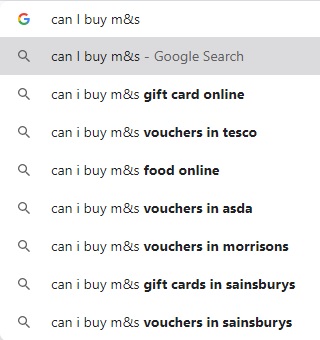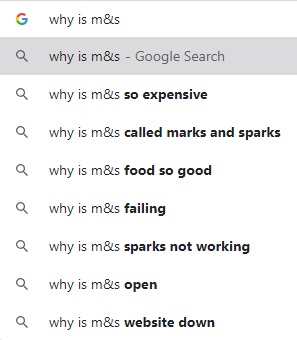Thursday 30th of July 2020
After being around for 22 years, Google has nicely settled in our lifestyles and became a non-judgemental source of advice, it’s almost like a virtual friend. Seriously, who has never asked Google for the answer to a tough assignment question? Or looked for advice on what to wear to look smart at the Christmas party?
Bearing in mind that there are over 63,000 searches every SECOND, we’ll let you calculate how many searches a day it represents. This is not to mention the enormous quantity of valuable search data.
Now, imagine if you were able to infiltrate your customers’ mind, understand their anxieties, their dreams, and find out about their most secret thoughts. That’s what this search data is here for, it (literally) helps you read your consumers’ mind.
According to searchlistening.com, this is “the process of understanding what an audience truly thinks, using the ultimate source of insight - search data”. On the opposite side, social listening uses social data as you may have already guessed. We will talk about the latter in another article, but for now, back to search listening.
The tools you can use to practice search listening are pretty simple and free. You can start by typing in Google the beginning of a query related to your business and see what comes up. You can already get some interesting audience insights from the example below. We can tell from the predictive searches that Marks and Spencers consumers like the food but that it is also perceived as overly expensive, hence why they search for vouchers.


This technique will give you some insight into what your consumers are searching for but if you want to delve deeper into search listening you’re better off using online tools such as answerthepublic.com or Google Trends. These tools also save you time as they automatically retrieve all search queries related to your keyword instead of having to manually type in every potential query.
Of course, this is an on-going process as people’s opinions and preferences change over time, so if you decide to use search listening to guide your marketing strategy, keep monitoring what people search for regularly.
Should you decide to go ahead and use this method, the impact it will have on your business is priceless. You will write more appealing content, based on what your audience wants to read. This will in turn increase the quality score of your content and eventually improve your ranking in Google Search results. It will also give you incredibly valuable information for your Google AdWords campaign. Indeed, it tells you quite straightforwardly which keywords to bid on. More generally, search listening can also help you understand what your audience is looking for, what they like and don’t like about your products or services, even how they use them and how they talk about them.
All in all, search listening is a relatively new concept and it remains untapped. Companies who adopt search listening now as part of their marketing strategy will definitely get a competitive edge.
If you want to learn more about search listening, the platform seachlistening.com is the main source of information on the topic and has plenty of free resources, whether you are looking for advice to use answerthepublic.com or whether you are simply curious about current search trends. No time for search listening? Let our experts at Finesse Digital do the job for you! Get in touch.

